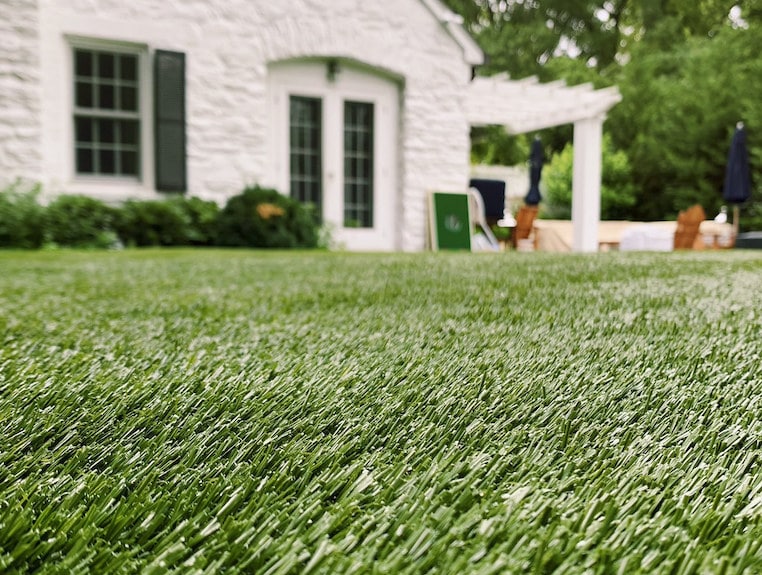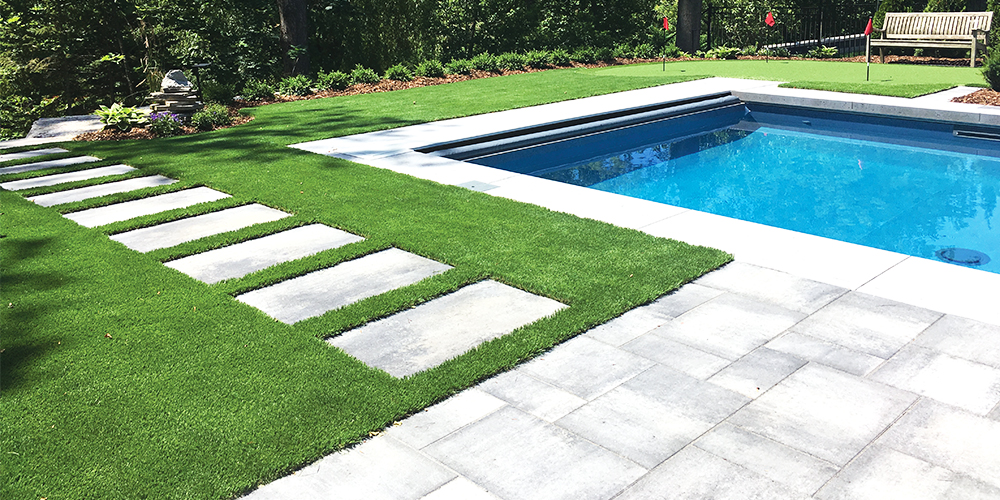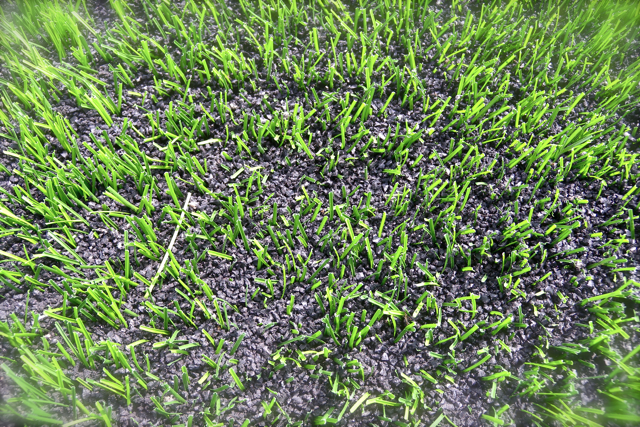Find Trusted Artificial Turf Companies Phoenix for Your Outdoor Needs
Find Trusted Artificial Turf Companies Phoenix for Your Outdoor Needs
Blog Article
Delve Into the Environmental Benefits of Opting for Artificial Lawn Solutions
The adoption of artificial grass solutions presents a compelling chance to deal with pushing environmental difficulties. By substantially minimizing water use and lessening the application of unsafe chemicals, these options not just advertise sustainable landscape design however also secure local environments. Furthermore, the reduced carbon impact associated with lowered upkeep tasks adds to a more sustainable technique to land monitoring. However, the effects of these benefits prolong beyond mere preservation efforts, questioning about their long-lasting effect on habitat preservation and overall eco-friendly balance. Exploring these measurements discloses an intricate interplay worth thinking about.
Water Conservation Benefits
One of one of the most significant benefits of synthetic grass is its capability to save water. Typical grass yards require substantial watering, particularly in locations susceptible to drought or water restrictions. On the other hand, synthetic grass does not require watering, substantially minimizing the overall demand for water resources. This attribute is particularly beneficial in deserts where water deficiency is a pressing concern.
By eliminating the demand for routine watering, man-made turf adds to sustainable landscape techniques and helps minimize the environmental influence of excessive water consumption. The preservation of water prolongs to the reduction of drainage, which can lead to dirt disintegration and river pollution.
Additionally, the installment of synthetic grass enables communities and homeowners to allocate water resources extra successfully, concentrating on necessary uses such as alcohol consumption water and farming. The shift in the direction of artificial turf not just advertises accountable water use yet additionally lines up with broader environmental objectives intended at preserving natural deposits.
As areas increasingly focus on sustainability, the water preservation benefits of synthetic grass provide an engaging situation for its adoption in industrial and residential landscape design jobs.
Decreased Chemical Usage
The transition to synthetic grass considerably lowers the dependence on chemical therapies commonly utilized in all-natural turf upkeep. Conventional turf management usually involves the application of herbicides, pesticides, and plant foods to promote development and control bugs. These chemicals can pose risks to human health, local wildlife, and the environment, adding to dirt and water contamination.
In comparison, fabricated grass removes the need for these damaging materials. By lessening the release of artificial substances into the ecological community, fabricated grass advertises healthier dirt and water systems.
Furthermore, the absence of chemical drainage linked with synthetic grass installments assists secure regional rivers from pollution, supporting marine life and keeping biodiversity. Artificial turf companies phoenix. As communities progressively prioritize sustainable methods, opting for fabricated grass presents a feasible option that lines up with ecological conservation objectives. With this change, homeowner can take pleasure in lavish environment-friendly spaces without jeopardizing eco-friendly health and wellness, leading the way for a much more sustainable future
Lower Carbon Footprint

In addition, the installment of artificial turf can result in significant water preservation. Natural grass need considerable amounts of water for irrigation, which not just includes in the carbon impact connected with water extraction and treatment yet additionally stress local water resources. On the other hand, synthetic grass needs minimal upkeep, needing no watering, consequently considerably reducing water use and its linked energy expenses.
In addition, the longevity of synthetic lawn adds to its decreased carbon effect. With a life-span of approximately 15 years or here even more, the need for regular replacements is reduced, resulting in less waste and lower power consumption in production and taking care of standard grass choices. In general, synthetic grass provides a sustainable option for environmentally conscious landscaping.
Environment Conservation
Environment preservation is an essential consideration in the dispute over landscape design options, particularly when comparing synthetic grass to all-natural lawn. Natural turf lawns frequently call for comprehensive maintenance, consisting of the use of herbicides, chemicals, and fertilizers, which can negatively affect neighborhood communities. These chemicals can leach right into the soil and rivers, damaging native vegetation and fauna and interrupting regional environments.
Man-made grass removes the demand for harmful chemicals, thus shielding nearby wildlife and keeping the integrity of surrounding environments. The setup of artificial lawn can lead to the conversion of previous yard areas right into even more biodiverse landscapes, such as pollinator yards or indigenous plant locations, which can sustain local wild animals.
Ultimately, the shift to fabricated turf not only conserves water and decreases maintenance efforts however also fosters a much more harmonious relationship between human tasks and the native environment, promoting habitat preservation in the procedure.
Long-Term Sustainability
Long-lasting sustainability is a crucial consider reviewing the benefits of fabricated turf over standard turf yards. Among the most substantial advantages of artificial grass is its sturdiness; it can last up to 15-20 years with marginal upkeep, whereas all-natural grass calls for constant reseeding and substitute. This longevity lowers the need for consistent resources, such as water, plant foods, and pesticides, which are important for maintaining a healthy and balanced turf yard.
Furthermore, synthetic grass adds to a decrease in carbon exhausts linked with grass treatment devices. Conventional yards typically require gas-powered lawn mowers, leaners, and blowers, all of which add to air contamination. Phoenix turf companies. On the other hand, synthetic grass removes the requirement for such devices, promoting a cleaner environment
In addition, the manufacturing of fabricated turf progressively uses recycled products, improving its sustainability account. As suppliers embrace environment-friendly techniques, the environmental footprint of fabricated grass proceeds to diminish.

Verdict
The adoption of artificial lawn options offers considerable ecological advantages, including substantial water great post to read conservation, reduced dependence on dangerous chemicals, and a reduced carbon impact. Furthermore, artificial turf aids in maintaining natural environments by reducing land disturbance and promoting lasting sustainability via using sturdy materials. Jointly, these factors underscore the possibility of fabricated grass to contribute positively to ecological health and wellness and provide a practical choice to typical landscape design methods in a significantly resource-conscious globe.
In comparison, synthetic turf does not need watering, considerably lowering the overall demand for water sources. By lessening the launch of synthetic compounds right into the ecosystem, fabricated grass advertises much healthier soil and water systems.
Additionally, the installment of artificial grass can result in significant water preservation. In comparison, synthetic turf needs very little maintenance, needing no watering, thereby significantly decreasing water usage and its associated power prices.

Report this page